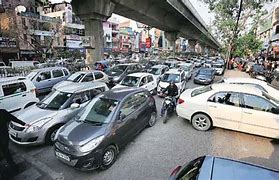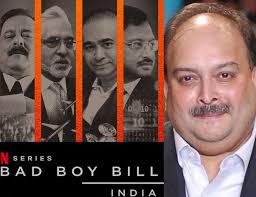Feature
HC notice to Centre, Delhi government on maternal health schemes

New Delhi: Taking strong note of the failure of the maternal health schemes, the Delhi High Court has sought to know from the central and Delhi governments the measures they have taken in this regard.
Justice Rajiv Shakdher issued notice to the central and Delhi governments asking them to indicate the measures they have taken on working such schemes and gaps in them, and to highlight the reasons for not properly implementing them.
Issuing notice to Delhi’s Deen Dayal Upadhyay (DDU) Hospital and Guru Gobind Singh Hospital (GGSH), the court also asked them to file responses on the measures that require compliance.
“The hospitals have to indicate the measures that require compliance as per the provisions of Janani Suraksha Yojana (JSY), Integrated Child Development Scheme (ICDS), National Maternity Benefit Scheme (NMBS), Antyodaya Anna Yojana (AAY), National Family Benefit Scheme (NFBS),” said the court.
The government designed these schemes to reduce maternal and neo-natal mortality by encouraging institutional delivery for poor pregnant women and providing necessary health and medical care during the term.
The court’s direction came on a plea of mother-in-law of Tabassum, a 25-year-old woman who died along with her new-born baby in February in the DDU Hospital, after she was not given necessary health and medical care by the authorities.
Tabassum, who belonged to poor strata of society, and her baby died as a result of “poor implementation of government maternal health schemes, absence of ante-natal care, a broken referral system, and substandard medical treatment during delivery”, alleged the plea.
The woman who left behind a five year-old kid had registered her second pregnancy at the MCD dispensary in Jwala Puri, Delhi. Tabassum’s labour pains began on February 6, 2015, in early morning, after which she was taken to the dispensary but there was no doctor on duty to attend her and her condition started worsening.
From the dispensary she was taken to the Guru Gobind Singh Hospital and the ambulance took one hour to reach the hospital. The hospital staff referred Tabassum to the Deen Dayal Upadhyay Hospital, saying they did not have adequate equipment required for the surgery. It took another 30 minutes for her to reach the DDU Hospital.
“Tabassum’s mother-in-law paid Rs.5,000 for medicines and her son paid additional sums in clear violation of the Janani Shishu Suraksha Karyakaram (JSSK) which guarantees totally free delivery services for all women at all government facilities,” the plea filed through the Human Rights Law Network claimed.
After the delivery of child, the Deen Dayal Upadhhyay Hospital staff did not provide Tabassum’s family any information about the health condition of the baby or about Tabassum. Next morning, the baby died and the doctors did not inform the family of the cause of death. A day later, Tabassum’s condition started deteriorating, and the doctors did not inform the family about it either. She died on February 15.
The plea said from 4 a.m. till 3 p.m. of February 6, Tabassum was “either travelling from one health facility to another or waiting for her treatment”, which had complicated her case.
“Delay in seeking delivery care, a delay in reaching facilities, and a delay in receiving adequate care at facilities led to the death of Tabassum,” said the plea.
It said the latest data shows that 50,000 women in India died from pregnancy related causes in 2013, or 137 women every day and six women every hour.
“The World Health Organization reports that the 90 percent of maternal deaths are preventable if women have access to antenatal services, skilled delivery assistance, and post-natal care,” the plea stated.
The plea sought Rs.12 lakh compensation in a fixed deposit account in the name of Tabassum’s son for violations of his mother’s fundamental rights and to ensure his education and health.
The plea also sought direction to governments to ensure that no woman succumbs to a preventable maternal death in Delhi and the entitlements under the JSY be provided to women post-delivery.
“NMBS be provided to all needful citizens 8-12 weeks prior to delivery, government fully implement the guarantees in Janani-Shishu Surakasha Karyakram (JSSK), all patients and their families are treated with respect and dignity, and appropriate compensation be provided to the victim and family when preventable maternal deaths happen due to callousness caused by government aide d or private hospitals,” it added.
Entertainment
Meghalaya Reserves Legalized Gambling and Sports Betting for Tourists

The State Scores Extra High on Gaming-Friendly Industry Index
Meghalaya scored 92.85 out of 100 possible points in a Gaming Industry Index and proved to be India’s most gaming-friendly state following its recent profound legislation changes over the field allowing land-based and online gaming, including games of chance, under a licensing regime.
The index by the UK India Business Council (UKIBC) uses a scale of 0 to 100 to measure the level of legalisation on gambling and betting achieved by a state based on the scores over a set of seven different games – lottery, horse racing, betting on sports, poker, rummy, casino and fantasy sports
Starting from February last year, Meghalaya became the third state in India’s northeast to legalise gambling and betting after Sikkim and Nagaland. After consultations with the UKIBC, the state proceeded with the adoption of the Meghalaya Regulation of Gaming Act, 2021 and the nullification of the Meghalaya Prevention of Gambling Act, 1970. Subsequently in December, the Meghalaya Regulation of Gaming Rules, 2021 were notified and came into force.
All for the Tourists
The move to legalise and license various forms of offline and online betting and gambling in Meghalaya is aimed at boosting tourism and creating jobs, and altogether raising taxation revenues for the northeastern state. At the same time, the opportunities to bet and gamble legally will be reserved only for tourists and visitors.
“We came out with a Gaming Act and subsequently framed the Regulation of Gaming Rules, 2021. The government will accordingly issue licenses to operate games of skill and chance, both online and offline,” said James P. K. Sangma, Meghalaya State Law and Taxation Minister speaking in the capital city of Shillong. “But the legalized gambling and gaming will only be for tourists and not residents of Meghalaya,” he continued.
To be allowed to play, tourists and people visiting the state for work or business purposes will have to prove their non-resident status by presenting appropriate documents, in a process similar to a bank KYC (Know Your Customer) procedure.
Meghalaya Reaches Out to a Vast Market
With 140 millions of people in India estimated to bet regularly on sports, and a total of 370 million desi bettors around prominent sporting events, as per data from one of the latest reports by Esse N Videri, Meghalaya is set to reach out and take a piece of a vast market.
Estimates on the financial value of India’s sports betting market, combined across all types of offline channels and online sports and cricket predictions and betting platforms, speak about amounts between $130 and $150 billion (roughly between ₹9.7 and ₹11.5 lakh crore).
Andhra Pradesh, Telangana and Delhi are shown to deliver the highest number of bettors and Meghalaya can count on substantial tourists flow from their betting circles. The sports betting communities of Karnataka, Maharashtra, Uttar Pradesh and Haryana are also not to be underestimated.
Among the sports, cricket is most popular, registering 68 percent of the total bet count analyzed by Esse N Videri. Football takes second position with 11 percent of the bets, followed by betting on FIFA at 7 percent and on eCricket at 5 percent. The last position in the Top 5 of popular sports for betting in India is taken by tennis with 3 percent of the bet count.
Local Citizens will Still have Their Teer Betting
Meghalaya residents will still be permitted to participate in teer betting over arrow-shooting results. Teer is a traditional method of gambling, somewhat similar to a lottery draw, and held under the rules of the Meghalaya Regulation of the Game of Arrow Shooting and the Sale of Teer Tickets Act, 2018.
Teer includes bettors wagering on the number of arrows that reach the target which is placed about 50 meters away from a team of 20 archers positioned in a semicircle.
The archers shoot volleys of arrows at the target for ten minutes, and players place their bets choosing a number between 0 and 99 trying to guess the last two digits of the number of arrows that successfully pierce the target.
If, for example, the number of hits is 256, anyone who has bet on 56 wins an amount eight times bigger than their wager.





















